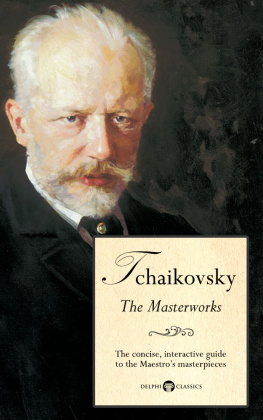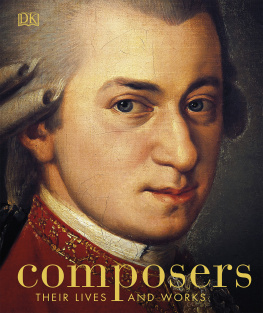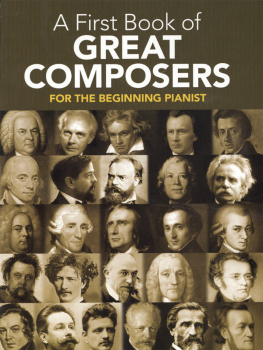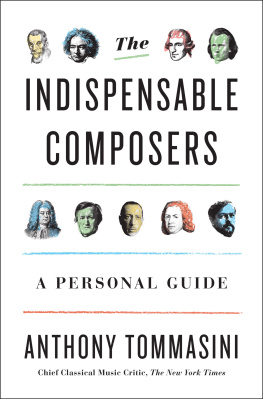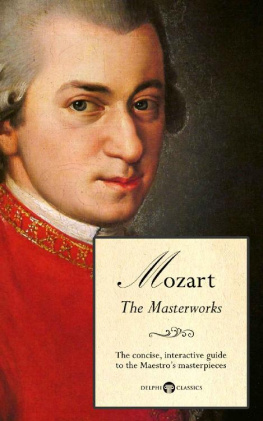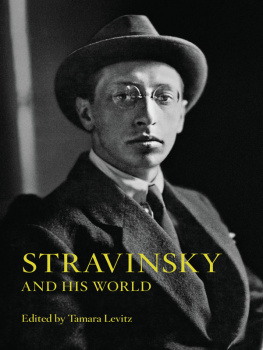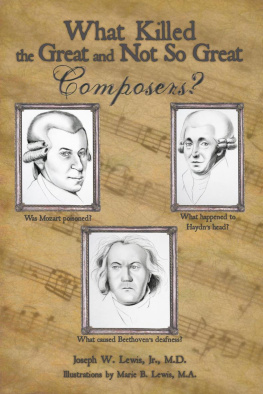Tim Dowley - Stravinsky
Here you can read online Tim Dowley - Stravinsky full text of the book (entire story) in english for free. Download pdf and epub, get meaning, cover and reviews about this ebook. year: 2011, publisher: Music Sales Limited, genre: Non-fiction. Description of the work, (preface) as well as reviews are available. Best literature library LitArk.com created for fans of good reading and offers a wide selection of genres:
Romance novel
Science fiction
Adventure
Detective
Science
History
Home and family
Prose
Art
Politics
Computer
Non-fiction
Religion
Business
Children
Humor
Choose a favorite category and find really read worthwhile books. Enjoy immersion in the world of imagination, feel the emotions of the characters or learn something new for yourself, make an fascinating discovery.

- Book:Stravinsky
- Author:
- Publisher:Music Sales Limited
- Genre:
- Year:2011
- Rating:3 / 5
- Favourites:Add to favourites
- Your mark:
- 60
- 1
- 2
- 3
- 4
- 5
Stravinsky: summary, description and annotation
We offer to read an annotation, description, summary or preface (depends on what the author of the book "Stravinsky" wrote himself). If you haven't found the necessary information about the book — write in the comments, we will try to find it.
This series of biographies presents the great composers against the background of their times. Each draws on personal letters and recollections, engravings, paintings and, when they exist, photographs, to present a complete picture of the composers life.
Stravinsky — read online for free the complete book (whole text) full work
Below is the text of the book, divided by pages. System saving the place of the last page read, allows you to conveniently read the book "Stravinsky" online for free, without having to search again every time where you left off. Put a bookmark, and you can go to the page where you finished reading at any time.
Font size:
Interval:
Bookmark:
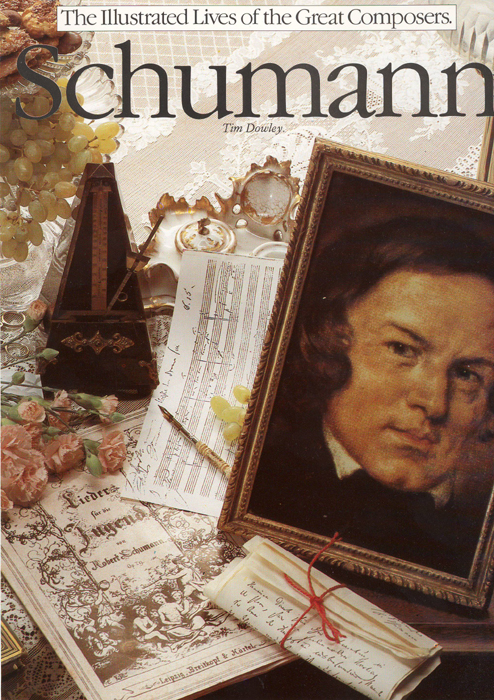
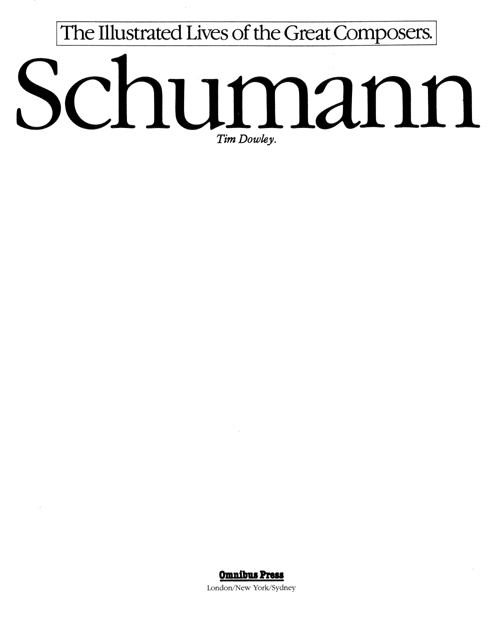
Copyright 1982 Omnibus Press
This edition 2010 Omnibus Press
(A Division of Music Sales Limited, 14-15 Berners Street, London W1T 3LJ)
ISBN: 978-0-85712-568-2
The Author hereby asserts his / her right to be identified as the author of this work in accordance with Sections 77 to 78 of the Copyright, Designs and Patents Act 1988.
All rights reserved. No part of this book may be reproduced in any form or by any electronic or mechanical means, including information storage and retrieval systems, without permission in writing from the publisher, except by a reviewer who may quote brief passages.
Every effort has been made to trace the copyright holders of the photographs in this book, but one or two were unreachable. We would be grateful if the photographers concerned would contact us.
A catalogue record of this book is available from the British Library.
For all your musical needs including instruments, sheet music and accessories, visit www.musicroom.com
For on-demand sheet music straight to your home printer, visit www.sheetmusicdirect.com
The Complete Series
Bach Tim Dowley
Bartk Hamish Milne
Beethoven Ates Orga
Berlioz Robert Clarson-Leach
Brahms Paul Holmes
Chopin Ates Orga
Debussy Paul Holmes
Dvok Neil Butterworth
Elgar Simon Mundy
Gilbert & Sullivan Alan James
Haydn Neil Butterworth
Liszt Bryce Morrison
Mahler Edward Seckerson
Mendelssohn Mozelle Moshansky
Mozart Peggy Woodford
Offenbach Peter Gammond
Paganini John Sugden
Prokofiev David Gutman
Rachmaninoff Robert Walker
Ravel David Burnett-James
Rossini Nicholas Till
Schubert Peggy Woodford
Schumann Tim Dowley
Shostakovich Eric Roseberry
Sibelius David Burnett-James
Strauss Family Peter Kemp
Tchaikovsky Wilson Strutte
Verdi Peter Southwell-Sander
Villa-Lobos Lisa Peppercorn
Vivaldi John Booth
Wagner Howard Gray
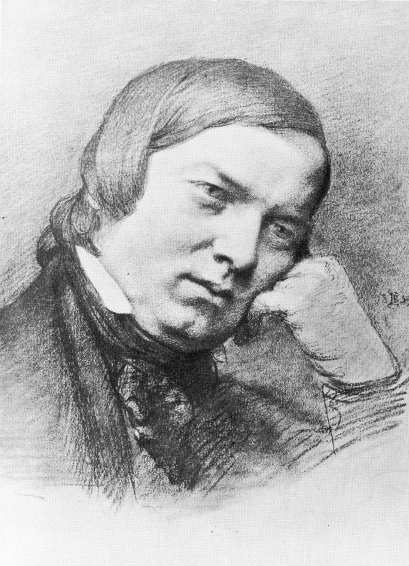
Illustrations reproduced by kind permission of The Mansell Collection, Radio Times Hulton Picture Library and the Mary Evans Picture Library.
Robert Alexander Schumann was born in the small riverside town of Zwickau, Saxony, in 1810. The local paper, the Zwickauer Wochenblatt, announced:
On 8 June to Herr August Schumann, notable citizen and bookseller here, a little son.
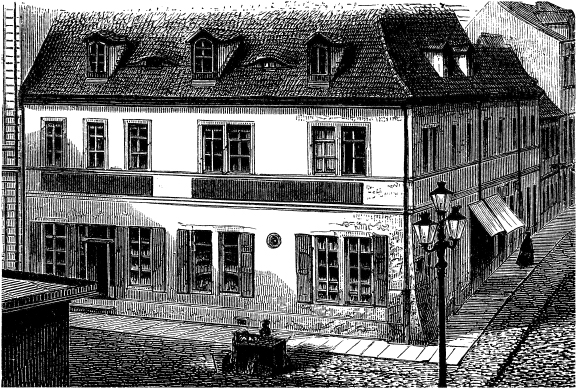
Robert Schumanns home in Zwickau
The son of a clergyman, August Schumann was born in 1773, and did not become a notable citizen without great effort. His early life was an uphill struggle against poverty and his parents opposition. Poor himself, Augusts father tried to steer his son into a safe, solid career. But August was irresistibly drawn to poetry, and even sent some of his early efforts to the bookseller Heinse for criticism. Heinse was not terribly impressed, but in 1792 August Schumann, now working as a grocers assistant in Leipzig, enrolled as an arts student at the citys university. There he remained until money ran out. Driven back penniless to his fathers house, he began work on a novel, Knightly Scenes and Monkish Tales, and although Heinse was again non-committal about its literary merits, the bookseller did offer August a job, as assistant in his shop at Zeitz.
August accepted, and all went well until he fell for Johanna Schnabel, the daughter of his landlord, who was the municipal surgeon. Objections to their match were strong, and an engagement was allowed only after Schumann agreed to give up bookselling for the more lucrative trade of grocery.
With his predilection for literature, over the next eighteen months August published several books, including novels and a commercial handbook, The Merchants Companion, and scraped together 1000 thaler to buy a shop. In 1799 August was able to turn once more to bookselling, opening his own shop in Zeitz. In 1808 he moved to the small town of Zwickau on the river Mulde, where, partnered by one of his brothers, he ran a prosperous business from a shop in the main square.
August does not seem to have been particularly musical, but his literary drive was strong, and he published many novels and stories. However his commercial and statistical works were more readily received by the reading public. He also launched a series of successful pocket editions of the classics of all the nations, and translated Byrons Beppo and Childe Harold into German.
Occasionally Augusts restlessness and anxiety threatened his stability, and he verged on nervous breakdown. He suffered particularly severely during the year of Roberts birth.
Of Roberts mother Johanna we have a much vaguer picture. One writer claimed that in later life:
She fell into an exaggerated state of romance and sentimentalism, together with sudden, violent passion, and a tendency to eccentricity, to which marital differences may have contributed.
She is also described as pedantic, unimaginative and intensely morbid. Unfortunately Robert seems to have inherited something of both his parents neurotic characteristics.
The youngest of five children, Robert Schumann was brought up in comfortable, middle-class respectability. As a child, he apparently exhibited no particularly remarkable abilities, and the Schumanns home life was generally secure and peaceful. Possibly, as the youngest of five, Robert was rather spoiled.
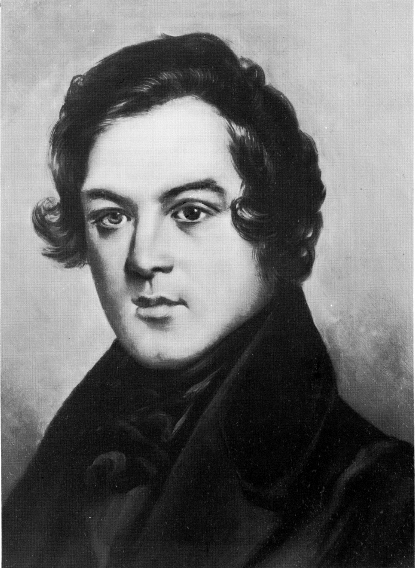
Robert Schumann
In 1812, Europe was still blasted by war. Napoleon raised a great army of half-a-million men, and marched east towards Russia. His route lay through the little town of Zwickau, which found itself traversed by columns of marching soldiers and platoons of cavalry, who took two days to pass through. The following year, during the disastrous retreat from Moscow, their route again brought them through Zwickau. Starving soldiers looted for food, and brought disease and plague. The wounded filled the towns hospitals, unhygenic conditions encouraged the spread of cholera, and nearly five hundred citizens of Zwickau died in a matter of weeks. Such devastation inevitably marked the Schumann family, and particularly the impressionable children.
At the age of six, Robert was sent to the local preparatory school, run by Archdeacon Dhner. He had in fact already begun his education, with the young tutor who gave lessons in exchange for board and lodging at the Schumann home.
At the age of seven Robert received his first piano lessons, from Johann Gottfried Kuntzsch, organist at St Marys Church, and schoolmaster at the Zwickau Lyceum. Kuntzsch was a kindly, conservative musician of limited abilities; his knowledge stemmed from leisure-time study. Despite his persistent attempts to drum up musical interest in Zwickau by joint performances by the choir, orchestra and military band, Kuntzschs musical gifts were not great. Nevertheless, Robert was soon improvising, and even composing a set of dances for the piano. A friend remembered:
Font size:
Interval:
Bookmark:
Similar books «Stravinsky»
Look at similar books to Stravinsky. We have selected literature similar in name and meaning in the hope of providing readers with more options to find new, interesting, not yet read works.
Discussion, reviews of the book Stravinsky and just readers' own opinions. Leave your comments, write what you think about the work, its meaning or the main characters. Specify what exactly you liked and what you didn't like, and why you think so.


